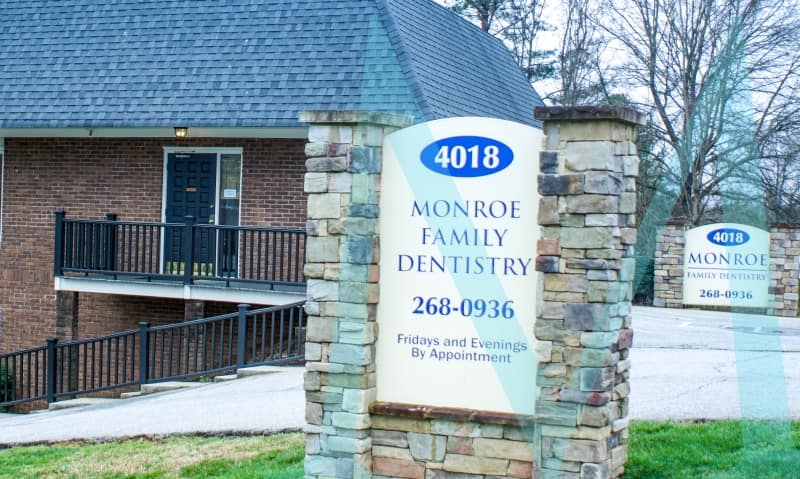Talk to Your Dentist in Greenville, SC, About Risk Factors for Periodontitis

Are you at risk for periodontitis?
If your gums hurt, or if you are currently suffering with gum tissue that is red, swollen, or bleeds easily when you brush or floss, then you may be dealing with gingivitis, the mildest form of gum disease. You’re also far from alone; it’s estimated that around 75% of all adults in the U.S. currently suffer from gingivitis.
While the symptoms of gingivitis are fairly mild and easy to ignore, leaving it unchecked can allow it to develop into periodontitis. This condition not only comes with more severe symptoms, but it can also only be treated, not cured.
Additionally, untreated periodontitis can develop into advanced periodontitis, which can, unfortunately, result in everything from dental abscesses to tooth loss. Advanced periodontitis has even been connected to serious health conditions.
It is important to take your gum health seriously and seek treatment if you believe you are noticing the signs of gum disease.
What is periodontitis?
Periodontitis, also known as periodontal disease or gum disease, is an infection of the gum tissue that is most often the result of poor oral hygiene. It begins as gingivitis, which is caused by a buildup of food debris and bacteria-filled plaque and tartar in the teeth and gums.
This buildup can initially result in inflammation, tenderness, and redness, followed by an array of additional symptoms if the infection is allowed to develop.
Symptoms of Periodontitis
There are several symptoms caused by gingivitis and periodontitis, including:
- Inflamed gum tissue
- Sore gums
- Receding gums
- Gums that bleed easily
- Tooth sensitivity
- Painful chewing
- Bad breath (halitosis)
- Persistent bad taste in the mouth
- Dental abscesses
- Bone loss
- Loose teeth
- Teeth loss
Infected gum tissue may begin to recede, creating the illusion that your teeth have grown longer. In reality, the receding gums have simply exposed the more sensitive parts of your teeth. This is why gum disease can make your teeth hurt.
Who is most at risk for gum disease?
Gum disease is most often the result of poor oral hygiene, so those who don’t brush and floss regularly are at a higher risk for developing it. This becomes even more true as people age, as the rate of periodontitis rises significantly the older they become.
Other risk factors for periodontal disease include stress, taking certain medications, smoking and tobacco use, teeth grinding (bruxism), heart disease, diabetes, obesity, and poor nutrition.
Why You Should Not Ignore Symptoms of Gum Disease
Although it begins fairly benign, periodontal disease can progress quickly and quietly, and it can lead to a number of significant issues with your oral and overall health, including:
Teeth Shifting
With your gum tissue weakened, your teeth can become unstable and begin to shift in your mouth. This can lead to a change in your bite, which may be painful and cause wear and damage to your teeth. That wear can result in tooth sensitivity and tooth decay.
Tooth Loss
In its advanced stage, you can begin to experience tooth loss from gum disease. Tooth loss can occur when your teeth have become severely decayed or your gum tissue is no longer able to support your teeth like it once did.
Serious Health Conditions
Advanced gum disease has been connected to a variety of serious and potentially life-threatening health conditions, including diabetes, stroke, heart disease, Alzheimer’s disease, and even cancer.
How is gum disease treated?
To care for your gums on your own, make sure to brush twice daily and floss once a day. Flossing is important because it reaches areas a toothbrush cannot and removes plaque and food debris that can eventually cause an infection in your gum tissue.
It’s also best to see your dentist once every six months for a routine oral evaluation and cleaning. And if you have signs of gum disease, you will need a periodontal checkup as well.
During a periodontitis screening, your dentist looks for the following:
- Depth of any gum pockets
- Recession of the gums
- Attachment of gum tissue to teeth
- Bleeding of the gums
- Presence of inflammation
- Presence of plaque and tartar
- Dental cavities
- Tooth mobility
- Bite pattern
- Level of bone loss
- Other risk factors
Should your dentist find that you have gum disease, there are treatment methods that are highly effective.
One of the most common is a scaling and root planing procedure. During this procedure, your dentist will remove plaque and tartar with a specialized tool and then attempt to help your gums to reattach themselves to your teeth so bacteria can’t collect as easily in your mouth.
Looking for the best Greenville, SC Dentist?
Staying current with your perio evaluations is vital for protecting your oral health and preventing gum disease. At Monroe Family Dentistry we provide gentle, individualized care in Greenville, SC. We want you to enjoy the confidence of a healthy smile. Request an appointment with our experienced team today.